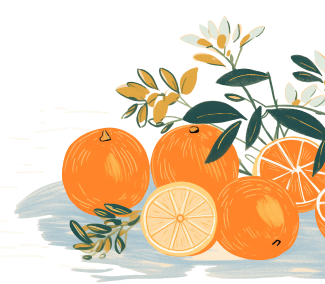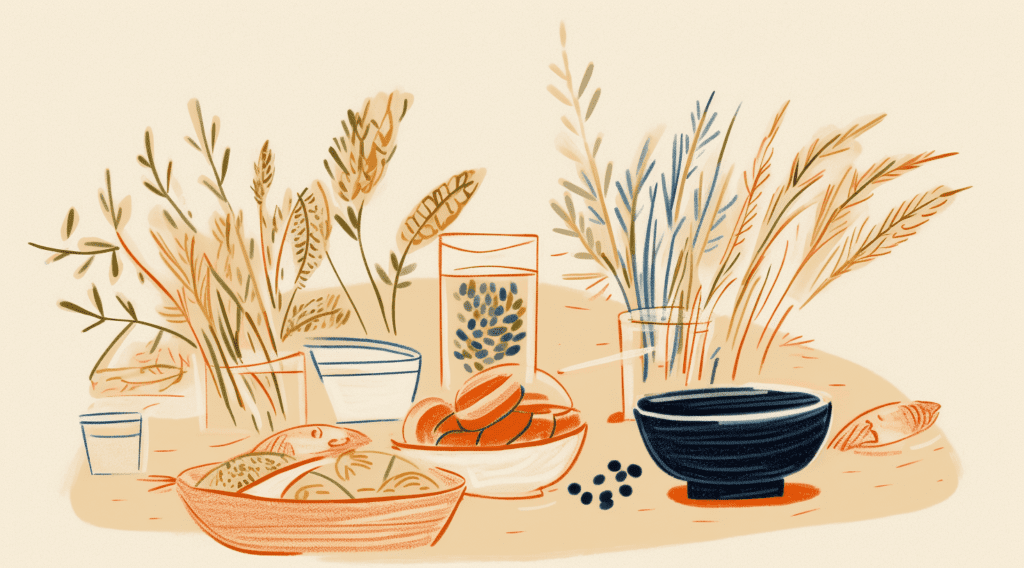Key Takeaways
When it comes to sweetening our foods and beverages, the options can feel overwhelming. From natural sugars found in fruits to artificial and plant-based sweeteners, understanding the pros and cons of each is essential for making informed dietary choices.
With sugar consumption being a major factor in overall health and linked to issues such as weight gain and type 2 diabetes, many people are reevaluating their sources of sweetness.
With all of the options available, what is the healthiest sweetener to use? This blog will guide you through the different types of sugars, how they impact the body, and what alternatives are available to help you make healthier choices. Whether you’re aiming to cut back on refined sugars or are curious about sugar substitutes, here’s what you need to know.
What Are Natural Types of Sugars?
Sugar is one type of carbohydrate along with fiber and starch. Carbohydrates are essential in our diet because the body uses them in large amounts. Sugar is a term for many types of sugar including white table sugar (sucrose) which is the most common.
Sugar is only one of the many types of sugars found in fruits, vegetables, grains, and dairy products. These natural sugars include fructose, galactose, glucose, lactose, and maltose.
How the Body Processes Sugar
To answer the question: what is the healthiest sweetener to use, it’s important to understand how the body processes sugar.
Our bodies process the sugars from foods; then the cells pull glucose from the bloodstream to use for fuel and energy. Removing whole-food carbohydrates from your diet is not a healthy choice because there are nutrient benefits that fruits and vegetables contain, not just sugar.
You can make better choices for where the sweetness in your diet comes from by choosing naturally derived sugars instead of refined sugars.
Consider the Sources of Sugar
There is a big difference between added sugar and naturally occurring sugar, particularly in cookies, donuts, candy, and bread, where refined sugar is added. The problem is that these are empty calories and there’s hardly any nutrient value. Consuming too much refined sugars with no nutrients can lead to health problems which include high blood sugar, insulin resistance, obesity, and type 2 diabetes.
Consuming fruits with naturally occurring fructose, juices, honey, and maple syrup has some nutritional benefits. Fruits contain fiber, vitamins, and antioxidants along with naturally occurring sugar and will sustain blood sugar longer than refined sugar
Upgrade your self-care routine
Covered by most insurance plans.

3 Types of Sugar Substitutes
Sugar substitutes are sweet-tasting dietary additives that contain no sugar and little to no calories. These ingredients are marketed as “sugar-free,” “keto,” or “low carb.” Sugar substitutes fall into three categories: artificial sweeteners, sugar alcohols, and novel sweeteners.
Artificial Sweeteners
Artificial sweeteners such as acesulfame, advantame, aspartame, saccharin, and sucralose are created from chemicals in a lab. They can be 200 to 700 times sweeter than sugar. They contain no calories or sugar and do not contain any beneficial nutrients. These ingredients are regulated by the Food and Drug Administration as food additives.
However, some experts believe that artificial sweeteners pose health risks. Research has been ongoing for artificial sweeteners and they are considered generally safe and acceptable for consumption at an acceptable daily intake. However, they have been linked to imbalances of gut bacteria that can lead to poor blood sugar control, increased food cravings, and weight gain.
Sugar Alcohol
Very similar to artificial sweeteners, sugar alcohols are created synthetically and usually from actual sugar. Sugar alcohols are commonly found in processed foods such as chewing gum and hard candies. They are known to cause some gastrointestinal discomfort such as bloating, gas, or diarrhea. Some examples of sugar alcohols are erythritol, isomalt, lactitol, maltitol, sorbitol, and xylitol.
Novel Sweeteners
Novel sweeteners are derived from natural sources they are also referred to as plant-derived non-caloric sweeteners. They provide the benefits of both artificial and natural sweeteners. They don’t contain a significant source of calories or sugar so they won’t spike blood sugar.
Novel sweeteners are also less processed and are similar to their natural sources. Examples include allulose, tagatose, stevia, and monk fruit. These sweeteners are regarded as generally safe by the FDA for their intended purpose.
What is the Healthiest Sweetener to Use?
When considering what is the healthiest sweetener to use, it’s essential to think about the balance between taste, nutritional value, and how your body processes it. For those looking to reduce refined sugar intake, opting for natural sweeteners like honey, maple syrup, or dates can be beneficial. These options contain small amounts of vitamins, minerals, and antioxidants, offering more than just empty calories.
Stevia and monk fruit are popular choices for those who want a non-caloric, plant-based option. They don’t impact blood sugar levels and are minimally processed compared to artificial sweeteners. However, moderation is key, as too much of any sweetener—natural or artificial—can lead to cravings and disrupt the balance of your diet.
For those who need to avoid calories or manage conditions like diabetes, artificial sweeteners or sugar alcohols can be a temporary solution. Still, potential side effects like digestive discomfort or changes in gut health should be considered. Ultimately, the healthiest sweetener is one that aligns with your dietary needs and lifestyle. Whole foods, like fruit, remain one of the best sources of natural sweetness due to their fiber and nutrient content. Prioritizing these over-processed or artificial options can lead to better overall health and sustainable dietary habits.
Tips for Reducing Refined Sugar
Finding a balance and making small changes to reduce refined sugar can make a big difference in your overall health.
Here are some practical tips to help you make smarter choices:
- If you really need something sweet, consider a sugar substitute like stevia or a mixture of stevia and sugar.
- Eat a diet rich in whole foods, including fruits, vegetables, whole grains, dairy, lean protein, nuts, and seeds.
- Skip the empty calorie beverages like energy drinks, sweet teas, and fruit juices.
- Use whole fruit as your sweetener like mashing a banana into oatmeal or blending dates in a smoothie.
- Enhance foods with spices like nutmeg and cinnamon, instead of sugar.
- Try more water or unsweetened teas.
- Avoid sugary desserts, and eat fresh fruits or yogurt with fruit.
- Instead of milk chocolate, try dark chocolate.
- Read food labels, and avoid pre-made sauces with added sugar.
- Eat full-fat foods, low-fat foods like peanut butter, yogurt, or salad dressings, actually contain more sugar and sometimes more calories than full-fat products.
- Consider eating more protein, diets that are higher in protein and lower in sugar promote fullness and reduce appetite and cravings.
Get Personalized Nutrition Support
Navigating the complex world of natural and artificial sweeteners can be challenging, especially when trying to maintain a balanced diet. For personalized guidance tailored to your individual health goals, consider consulting with one of our licensed dietitians.
Our registered dietitians provide expert advice on making sustainable changes to your diet, managing sugar intake, and making the best choices for your needs. This can help you feel more confident and support your path to better health. Book an appointment to start your transformation today.
Discover a healthier way
Covered by most insurance plans.






